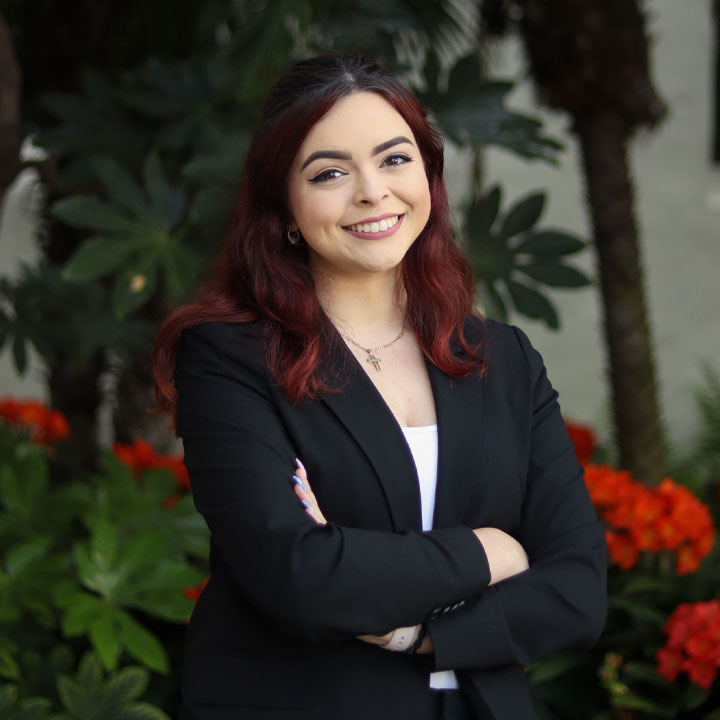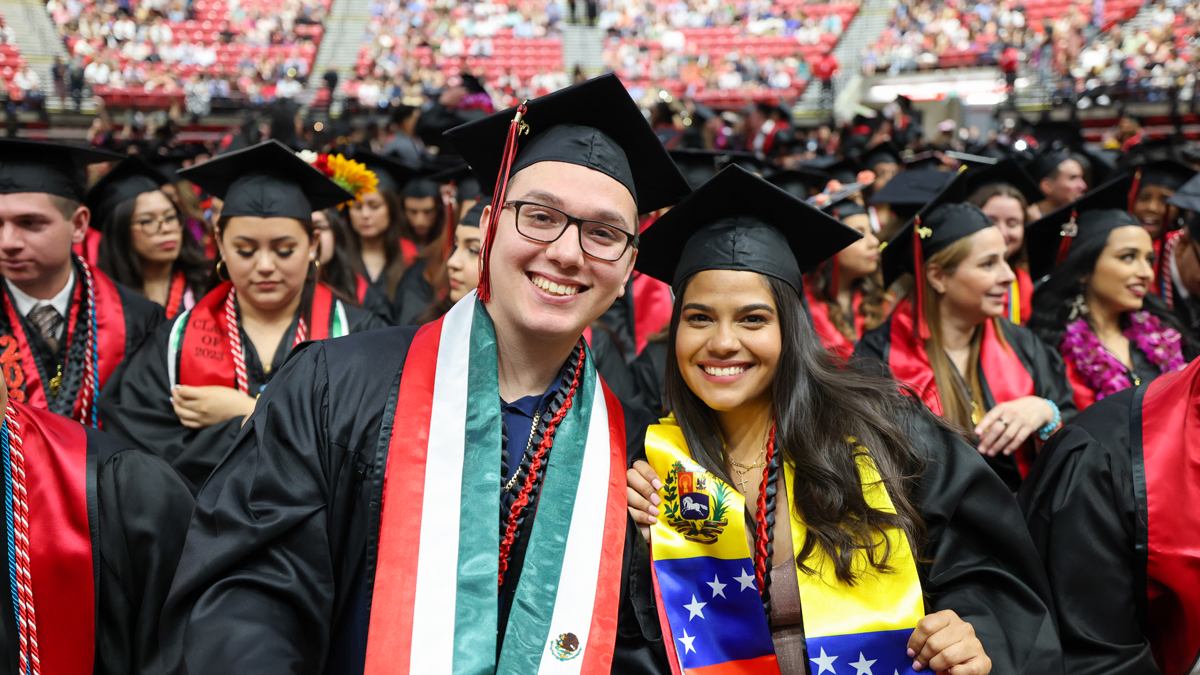Noemi Portillo investigates generational differences in Latino political communication
SDSU graduate student Noemi Portillo is researching how generational differences shape how Latinos interpret political messages, aiming to improve communication with multicultural communities while balancing full-time work and her master’s studies under advisor Dr. Kaye Sweetser.

“My thesis focuses on how different multigenerational statuses of Latinos interpret political messaging differently,” Noemi Portillo said with an easy confidence that comes from both passion and purpose.
Portillo is an SDSU alumna who earned her bachelor’s degree in English and Journalism with an emphasis in public relations. She’s currently continuing her journey as a graduate student in the School of Journalism and Media Studies, hoping to become a double Aztec alum by spring 2026.
For her, returning to SDSU felt natural. “I had already built my network here in San Diego. I knew the professors, the program and the community,” she explains. “Dr. Kaye Sweetser, who’s now my thesis advisor, was also my undergraduate professor. That familiarity made it feel like the right place to keep growing.”
But her decision to pursue graduate school runs deeper than professional connections. It’s also rooted in family and heritage.
“As a first-generation college student and Mexican American, education was always something my mom emphasized,” Portillo said. Her mother immigrated to the U.S. at 15 and didn’t have the opportunity to pursue higher education. “For her, it was so important that my sister and I valued learning,” she continued. “So I always knew I wanted to go beyond my undergraduate degree.”
Her thesis topic was inspired by her own family. “My mom came to the U.S. as a teenager and didn’t go through the American school system, while my uncle came when he was six,” Portillo explains. “Their views on U.S. politics are completely different, even though they share the same roots. That made me wonder how generational status affects how Latinos interpret political communication.”
Working under the guidance of Dr. Sweetser, Portillo is using a quantitative approach, distributing surveys to study how education, identity and cultural ties shape Latino voters’ perspectives.
She hopes her findings will not only contribute to academic literature but also inform how political campaigns engage with multicultural communities.
“I grew up in Santa Ana, a city that’s predominantly Latino and Spanish-speaking,” she said. “I’ve seen firsthand how lack of access to political information can affect a community. If my research can help campaigns communicate better with minority voters, that would mean everything.”
Balancing her thesis with full-time work at a public relations agency has not been easy. “Every day looks different,” she admitted with a laugh. “I work nine to five, take classes and sometimes have to sacrifice weekends with friends to meet deadlines. It’s definitely a juggling act.”
Still, she’s learned to appreciate the process and the lessons that come with it. “The most challenging part has been learning how much detail goes into academic writing,” she said. “But Dr. Sweetser always pushes me to dig deeper, to explain more. It’s made me a stronger writer and researcher.”
Despite the workload, Portillo finds joy in seeing her studies connect to real-world events. “I’ll be writing about something for my thesis, and then see it being discussed on social media or in the news,” she said. “It’s validating to know my work is relevant to what’s happening right now.”
Outside of research and work, Portillo enjoys quiet moments with family and friends, or a good book and a strong cup of coffee. “I love visiting coffee shops,” she said with a smile. “And whenever I can, I try to read or listen to an audiobook on my walks. It helps me recharge.”
When asked about her advice to other students thinking about grad school, she advises them to take the leap. “You don’t know what you’re capable of until you try,” she said.


